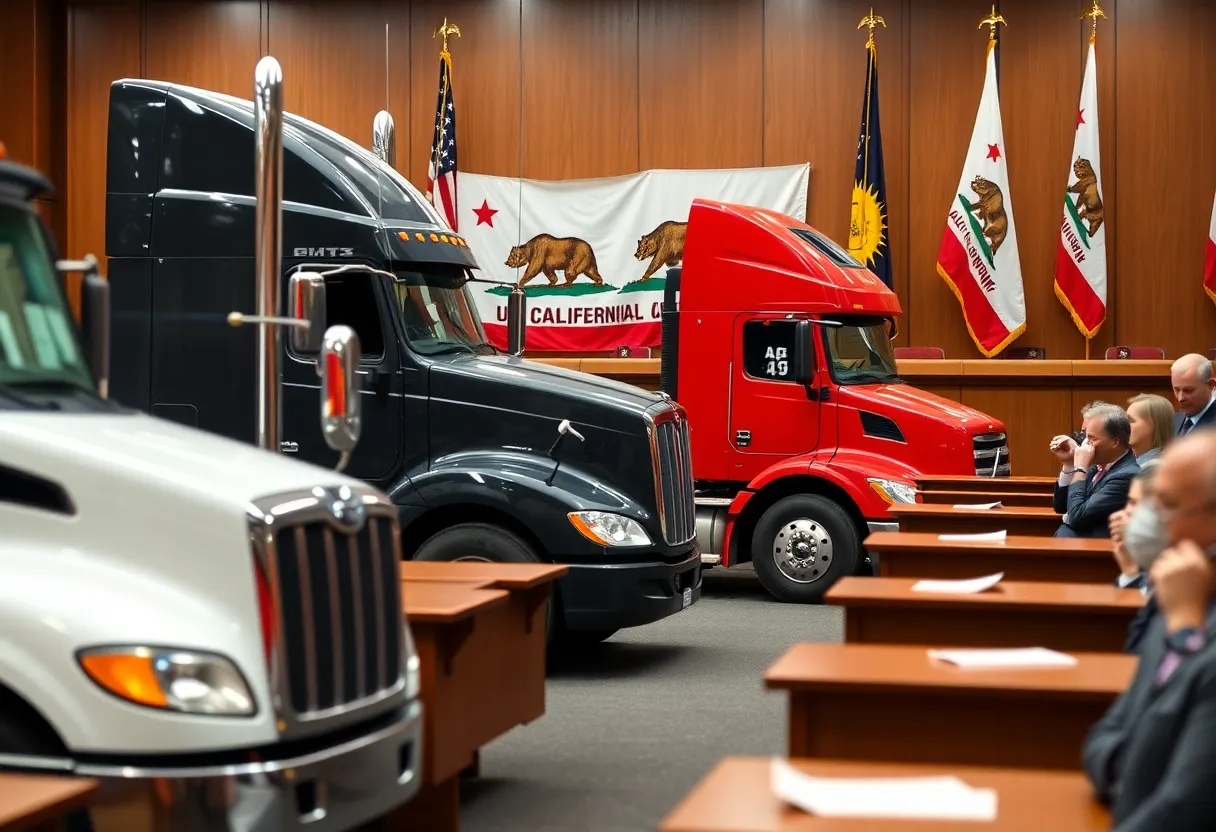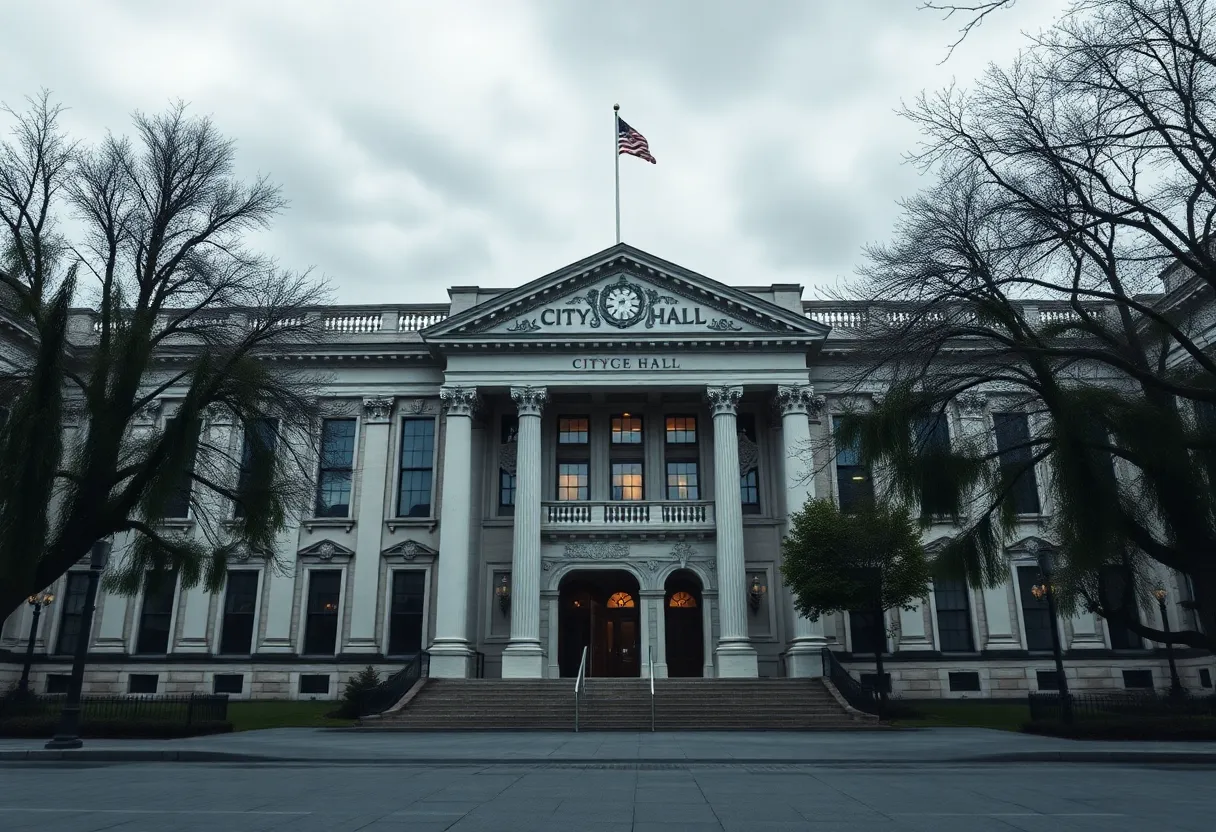News Summary
Truck manufacturers, including Daimler and Volvo, have filed a lawsuit against California’s Advanced Clean Trucks (ACT) mandate, citing conflicting federal and state regulations. The manufacturers argue that recent federal actions complicate their compliance with both ACT and new federal standards, seeking clarification from the California Air Resources Board (CARB). With pressure from California’s Governor and environmental groups, the lawsuit underscores the challenges faced by manufacturers amid stringent state emissions goals and changing federal regulations.
Sacramento, California – Truck manufacturers, including Daimler, PACCAR, Volvo Group North America, and International Motors, have filed a lawsuit with the U.S. District Court for the Eastern District of California, seeking to block the enforcement of the California Advanced Clean Trucks (ACT) mandate instituted by the California Air Resources Board (CARB). The manufacturers describe their predicament as “impossible,” stemming from a series of conflicting regulations at the state and federal levels.
The legal action comes in response to recent federal measures that revoked the Environmental Protection Agency’s (EPA) waiver. This waiver had previously allowed California to implement stricter emissions standards. The truck manufacturers contend that they cannot comply with both the ACT and updated federal standards imposed by recent Congressional and Presidential actions.
Central to the lawsuit is an agreement called the Clean Truck Partnership (CTP), established in 2023 by the Engine Manufacturers Association (EMA) to facilitate compliance with the ACT while seeking alignment between California’s emissions standards and federal regulations. However, the truck manufacturers assert that a letter from the Department of Justice on August 7 directed Daimler to stop complying with the CTP and California’s emissions regulations, complicating their ability to follow state guidelines.
The manufacturers are requesting further clarification from CARB regarding their obligations under the CTP, highlighting their concerns that California’s requirements are invalid due to federal preemption of state authority in regulating emissions. CARB has previously required engine makers to adhere to its standards for lawful sales in California, a position criticized by the truck manufacturers as conflicting with federal law.
In an executive order, California Governor Gavin Newsom warned manufacturers of potential negative regulatory consequences if they fail to comply with the ACT mandates, adding more pressure to an already complicated situation. Despite amendments CARB made to the ACT intended to provide flexibility, it also emphasized the commitments outlined in the Clean Truck Partnership, intensifying the conflict with manufacturers.
Historically, truck manufacturers have expressed dissatisfaction with the requirements of the ACT, arguing that California’s approach presents a ‘reckless’ threat to their operational capabilities. The situation has worsened following the elimination of the Advanced Clean Fleets rule, which required fleets to purchase a proportional percentage of zero-emission vehicles, making compliance with the ACT even more daunting.
The truck manufacturers in their suit underline the urgent need for clarification on upcoming laws and emissions standards planned for model year 2026, claiming that these uncertainties hinder effective product planning. Their complaint raises questions about California’s compliance with the Clean Air Act’s preemption provisions and challenges the constitutionality of a specific provision in the CTP that essentially prevents manufacturers from contesting CARB’s regulatory measures.
As part of their lawsuit, they seek injunctive relief that would prevent CARB from enforcing the ACT and associated regulations until a resolution is reached. CARB has opted not to comment on the pending litigation. Meanwhile, the Clean Freight Coalition has shown support for the truck manufacturers’ legal challenge against CARB, asserting the necessity of the lawsuit in the face of regulatory conflicts.
Critics from environmental advocacy groups suggest that the truck manufacturers’ claims diverge from the original intent of the Clean Truck Partnership, which was established to ease compliance during regulatory transitions. This lawsuit illustrates the growing friction between California’s comprehensive environmental policies and recent federal regulatory rollbacks, positioning truck manufacturers between stringent state-level expectations and the evolving federal landscape.
As the case progresses, both parties remain entrenched in their positions, with California demanding adherence to its ambitious emission reduction goals and truck manufacturers grappling with an increasingly complex regulatory environment that threatens their operations and planning capabilities.
Deeper Dive: News & Info About This Topic
- FreightWaves: Truck Manufacturers Lawsuit Against California
- Wikipedia: California Air Resources Board
- The Hill: Truck Makers Sue California Emissions
- Google Search: California emissions lawsuit
- Trucking Dive: OEMs Sue CARB Clean Truck Partnership
- Google Scholar: California truck emissions lawsuit
- San Francisco Chronicle: California Trucking Lawsuit
- Encyclopedia Britannica: Clean Air Act
- Transport Topics: Truck Makers Sue CARB
- Google News: California trucking emissions

Author: Anaheim Staff Writer
The Anaheim Staff Writer represents the experienced team at HEREAnaheim.com, your go-to source for actionable local news and information in Anaheim, Orange County, and beyond. Specializing in "news you can use," we cover essential topics like product reviews for personal and business needs, local business directories, politics, real estate trends, neighborhood insights, and state news affecting the area—with deep expertise drawn from years of dedicated reporting and strong community input, including local press releases and business updates. We deliver top reporting on high-value events such as major conventions at the Anaheim Convention Center, including NAMM and VidCon, exciting games at Angel Stadium and Honda Center, and developments at Disneyland Resort Our coverage extends to key organizations like the Anaheim Chamber of Commerce and Visit Anaheim, plus leading businesses in hospitality, entertainment, and innovation that power the local economy As part of the broader HERE network, including HERECostaMesa.com, HEREHuntingtonBeach.com, HERESantaAna.com, and HERELosAngeles.com, we provide comprehensive, credible insights into Southern California's dynamic landscape.




